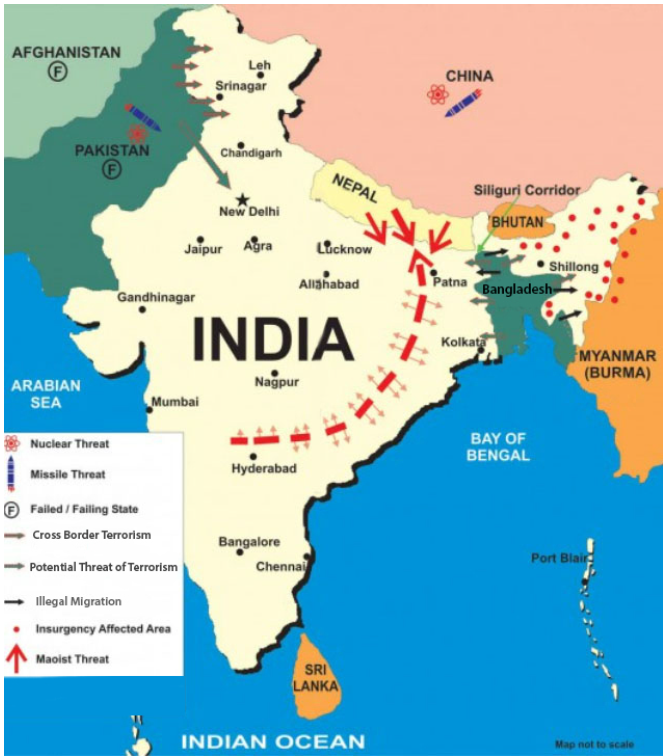21 June 2024 : Indian Express Editorial Analysis
1. The big test
(Source: Indian Express; Section: The Editorial Page; Page: 12)
| Topic: GS2 – Social Justice – Education |
| Context: |
|
About National Eligibility cum Entrance Test (NEET):
- The NEET (National Eligibility cum Entrance Test) is an entrance examination for students who wish to pursue undergraduate medical courses (MBBS/BDS) and postgraduate courses (MD/MS) in government or private medical colleges.
- Objective: To standardize the admission process for medical and dental courses across India, ensuring a uniform evaluation of candidates’ eligibility.
- The National Testing Agency (NTA) conducts NEET on behalf of the Ministry of Education.
Policy Foundations and Challenges:
- The policy to institute NEET was considered in 2010 by the Ministry of Health to address several key issues.
- Firstly, it aimed to standardize the educational competence of students entering medical colleges, as many were found lacking basic science knowledge.
- Secondly, it sought to reduce the number of entrance examinations from an estimated 46 to one.
- Thirdly, it aimed to eliminate capitation fees levied by private medical colleges by basing admissions on standardized scores.
- The implementation of the “one exam NEET policy” began in 2013 but was stalled by the Supreme Court due to petitions from private colleges, which argued that NEET centralized the admission process and took away institutional autonomy.
- In 2016, a five-judge bench restored NEET. However, a significant issue arose regarding the standard to be adopted for the examinations due to India’s lack of a uniform school education standard.
- Central government schools follow the CBSE syllabus, states have their own less challenging syllabuses, and high-end private schools often follow the International Baccalaureate (IB) system.
- This disparity results in a bias favoring CBSE students and has led to a booming coaching industry.
Consequences of Policy Implementation:
- The coaching industry, now a Rs 58,000 crore market growing at 15% per year, is a direct consequence of the failed school system.
- Poor governance, frequent syllabus changes, a focus on rote learning over inquiry and scientific temper, poor teaching quality, large vacancies, and inadequate infrastructure have all contributed to the deterioration of once-famed government schools.
- High-end public schools are only marginally better, leading to policies of one national examination and the proliferation of coaching institutes. Parents often request their children be enrolled in school but attend coaching classes instead, indicating systemic neglect.
- With the failure of the school system and the centralization of the education system, the NTA was constituted in 2017 to conduct examinations like NEET.
- Since its establishment, the NTA has faced numerous complaints of irregularities, demonstrating its inadequate capacity to conduct complex and important examinations.
- The ministries of education and health have virtually abdicated their responsibility to address the adverse consequences of centralization.
Regional Opposition and Impact on Marginalized Groups:
- Tamil Nadu has consistently opposed NEET, as it conflicts with their state policy linking medical college admissions to high school performance.
- An Expert Committee headed by Justice A.K. Rajan in 2021 highlighted that rural students from Tamil-medium schools were heavily disadvantaged by NEET, with admissions falling significantly.
- Similarly, rural student admissions to government medical colleges dropped from 62% to 50%. Tamil Nadu’s public health system relies on students from rural backgrounds willing to work in primary health centers, unlike their urban counterparts aspiring for careers in corporate hospitals or abroad.
- Despite several requests to review the NEET policy and passing a law to scrap NEET, the state’s efforts were thwarted by the Governor.
The Need for Policy Revamp:
- Revamping the NEET policy requires input from all stakeholders, moving beyond today’s polarized politics.
- An all-party committee, like the Joint Parliamentary Committee (JPC), could harmonize local realities and varied educational standards across states.
- Suggestions include making the MBBS degree six years with a pre-medical year to bring students to standard in critical subjects, decentralizing the examination to states and universities, and centralizing only the qualifying examination for practicing outside the state or abroad.
Long-term Solutions and Governance:
- The current NEET crisis reflects a failed state unable to ensure high-quality school education. Standardized schooling of good quality should enable college admissions based on school final examination marks, as seen in most countries.
- However, in India, varied standards and poor quality necessitate centralized examinations for professional courses. The long-term solution lies in improving schooling quality, decentralizing examinations, and institutionalizing strict oversight and governance to restore confidence and credibility.
- Until these issues are addressed, paper leakage and other irregularities will continue to plague the system.
| PYQ: National Education Policy 2020 is in conformity with the Sustainable Development Goal-4 (2030). It intends to restructure and reorient education system in India. Critically examine the statement. (250 words/15m) (UPSC CSE (M) GS-2 2020) |
| Practice Question: Discuss the major issues surrounding the implementation of the NEET (National Eligibility cum Entrance Test) in India. Suggest comprehensive reforms to address these challenges and restore trust in the examination system. (250 words/15 m) |
2. SECURITY, IN BLACK & WHITE
(Source: Indian Express; Section: The Editorial Page; Page: 12)
| Topic: GS3 – Internal Security |
| Context: |
|

What is a National Security Strategy?
- A National Security Strategy document outlines the country’s security objectives and the ways to be adopted to achieve these.
- An NSS should consider traditional (affect only the state) and non-traditional threats (affect the state, individual and the entirety of humanity). Also, It must work within the framework of India’s Constitution and democratic principles.
- The strategy often includes assessments of potential threats, resource allocation, diplomatic and military actions, and policies related to intelligence, defense, and other security-related areas.
Countries with a National Security Strategy:
- Developed nations with advanced military and security structures, such as the United States, the United Kingdom, and Russia, have National Security Strategies.
- China also has a Comprehensive National Security strategy, and Pakistan has released a National Security Policy 2022-2026.
The Necessity and Progress of NSS Formulation:
- The question arises: Why have we been engaged in formulating the NSS for the last twenty years?
- An apex-level Defence Planning Committee, chaired by the National Security Advisor, was established in 2018 to create the NSS and National Defence Strategy.
- Despite this, the progress of this highly publicized exercise remains unclear, with the current reliance on the inadequate RM’s Operational Directive.
Official Policy or Personal Opinion?
- There is speculation on whether the CDS’s statement reflects his personal opinion or an official policy stance.
- Historical instances, such as former Defence Minister Manohar Parrikar’s retraction of a major nuclear policy shift by labeling it as a personal opinion, add to this ambiguity.
- The CDS’s detailed explanation and reference to recent successes like the Balakot strike suggest an attempt to undermine the codification of the NSS.
- Notably, most relevant nations, including China and Pakistan, have established and published their NSS, indicating the global norm of formalizing such strategies.
Importance of a Well-Crafted NSS:
- A well-crafted NSS would promote a “whole of nation” approach, building synergy for harnessing comprehensive national power. It would set milestones for capability-building in modernization, infrastructure, and the Atmanirbhar mission.
- The current state of defense planning is in transition, with new formats like the Integrated Capability Plan (10 years) and Defence Capability Acquisition Plan (5 years) yet to stabilize.
- However, the government deserves commendation for enhancing defense modernization efforts.
Need for Improved Review Systems:
- The present review system by the Parliamentary Standing Committee and Auditor General is sub-optimal.
- These reviews need to be supplemented with net assessments and statistical tools for periodic audits, predictive analysis, and dynamic goal setting.
- The NSS, serving as a reference for peer reviews by think tanks, can reduce ambiguity and build meaningful accountability.
Operational Clarity and Decentralization:
- Operational clarity is a critical issue, especially in a system where Army Commanders’ handover procedures are brief and largely ceremonial.
- The current model has succeeded due to the competence of the present leadership, but suffers from over-centralization. In the long term, a decentralized directive style of command is necessary.
- The NSS could provide clear-cut ends, ways, and means while promoting delegation, synergy, and operational freedom, fostering initiative, innovation, and improvisation.
The Role of NSS in Command Transformation:
- The NSS is essential for the operationalization of theater commands and overall transformation.
- A clearly articulated NSS will cultivate audacious commanders like Field Marshal Sam Manekshaw, Lt Gen Harbaksh Singh, and Lt Gen Sagat Singh.
- As India progresses into Amrit Kaal, it is time to discard hesitation and ambiguity, moving towards informed debates based on a formalized NSS rather than relying on superficial social media discussions.
Conclusion:
- India must embrace the establishment of an NSS, ensuring that it includes a classified portion to maintain confidentiality and, if necessary, targeted ambiguity for strategic messaging.
- This approach will facilitate informed debates and robust policy development, strengthening national security and operational effectiveness in the long run.
| India’s Previous Attempts to Formulate a National Security Strategy (NSS) : |
|
| Practice Question: Analyze the significance of formulating a written National Security Strategy (NSS) for India. Discuss the challenges and potential benefits of such a strategy, referencing the current state of defense planning and operational command structures. How can India balance the need for confidentiality with the benefits of transparency in national security policy? (250 words/15 m) |

